
Sarah Zielinski
Editor, Print at Science News Explores
Sarah Zielinski is the Editor, Print for Science News Explores. A former editor at Smithsonian magazine, she has been published in Scientific American, Discover, National Geographic News, Science and Slate. She shared a Gold Award in the Children's Science News category of the 2022 AAAS Kavli Science Journalism Awards for a trio of Wild Things comics and has also received two DCSWA Science News Brief Awards and an honorable mention. She has a B.A. in biological sciences from Cornell University and an M.A. in journalism through New York University’s Science, Health and Environmental Reporting Program. She has three cats: Oscar, Saffir and Alani.

All Stories by Sarah Zielinski
-
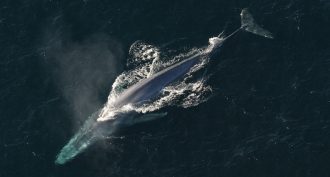 Animals
AnimalsA whale of a journey
The 5,200-kilometer (3,200 mile) journey of Isabela provides a window into the migration patterns of blue whales.
-
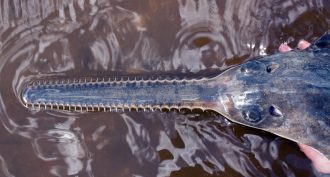 Animals
AnimalsThis endangered species gives new meaning to ‘single mom’
Scientists have found DNA evidence that in the wild, sawfish have produced offspring without mating. That’s a first for an animal with a backbone.
-
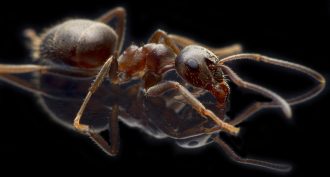 Animals
AnimalsWhere an ant goes when it’s gotta go
The black garden ant has been spotted defecating inside its own nest. Scientists now characterize these spots as ant toilets.
-
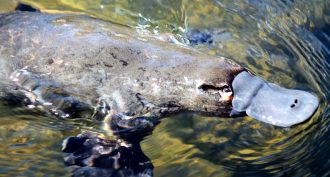 Animals
AnimalsCats and foxes are eating up Australia’s mammals
Since the arrival of Europeans in Australia, a startling number of mammal species have disappeared. A new study puts much of the blame on cats and foxes introduced by the early settlers.
-
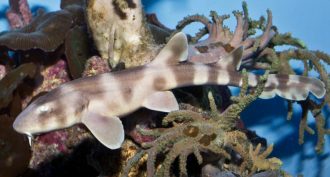 Animals
AnimalsShark: Who’s your daddy?
Female sharks can store sperm from a male for months before releasing a case containing a fertilized egg. But almost 4 years? That’s a new record that has biologists scratching their heads over how this could have happened.
-
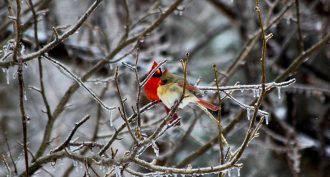 Animals
AnimalsClimate change brings new neighborhood birds
Climate change has made winters a little bit warmer. Many bird species are now wintering a lot farther north than they did a few decades ago, a new study finds.
-
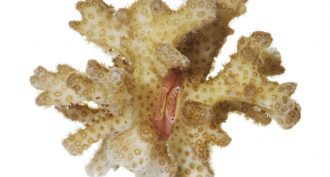 Animals
AnimalsCrabs play defense, save corals
In 2008, an outbreak of large starfish killed off much of a coral reef. But some patches were spared. New data point to why: Mini crabs had fended off the big attackers.
-
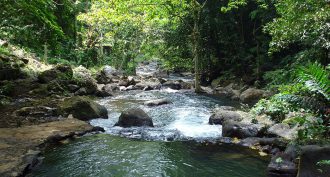 Environment
EnvironmentWill water woes leave Americans thirsty?
In the United States, people often assume that clean water will always be available. But factors ranging from global warming to pollution have begun threatening drinking-water supplies.
-
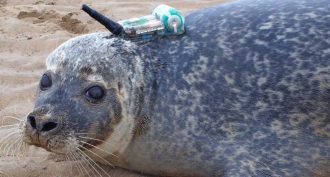 Animals
AnimalsWind farms: Restaurants for seals?
Scientists have tracked harbor seals visiting the turbines of ocean wind farms. The predators may be drawn by fish that make their homes in the artificial reefs created by the manmade structures.
-
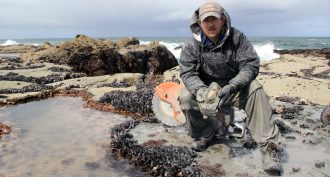 Fossils
FossilsFossil hunting can start as child’s play
Paleontology isn’t just for professionals. You don’t even need to be a teen to sometimes make startling — and scientifically important — contributions.
-
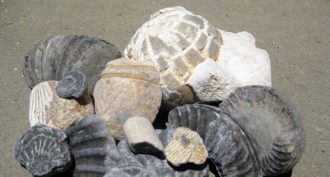 Fossils
FossilsExplainer: How a fossil forms
Minerals can replace any bone, shell or once-living tissue and also fill in the spaces between these hard parts, birthing a fossil.